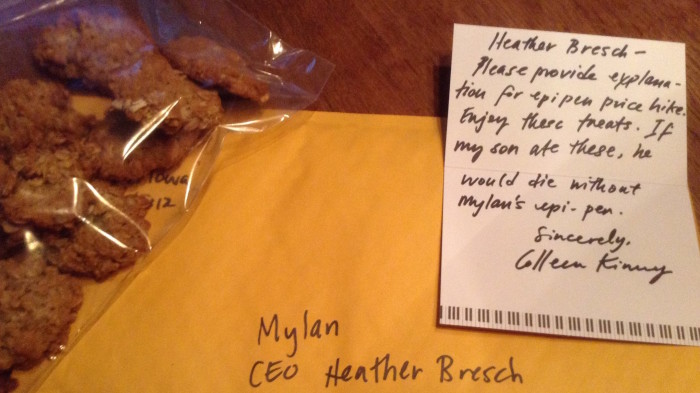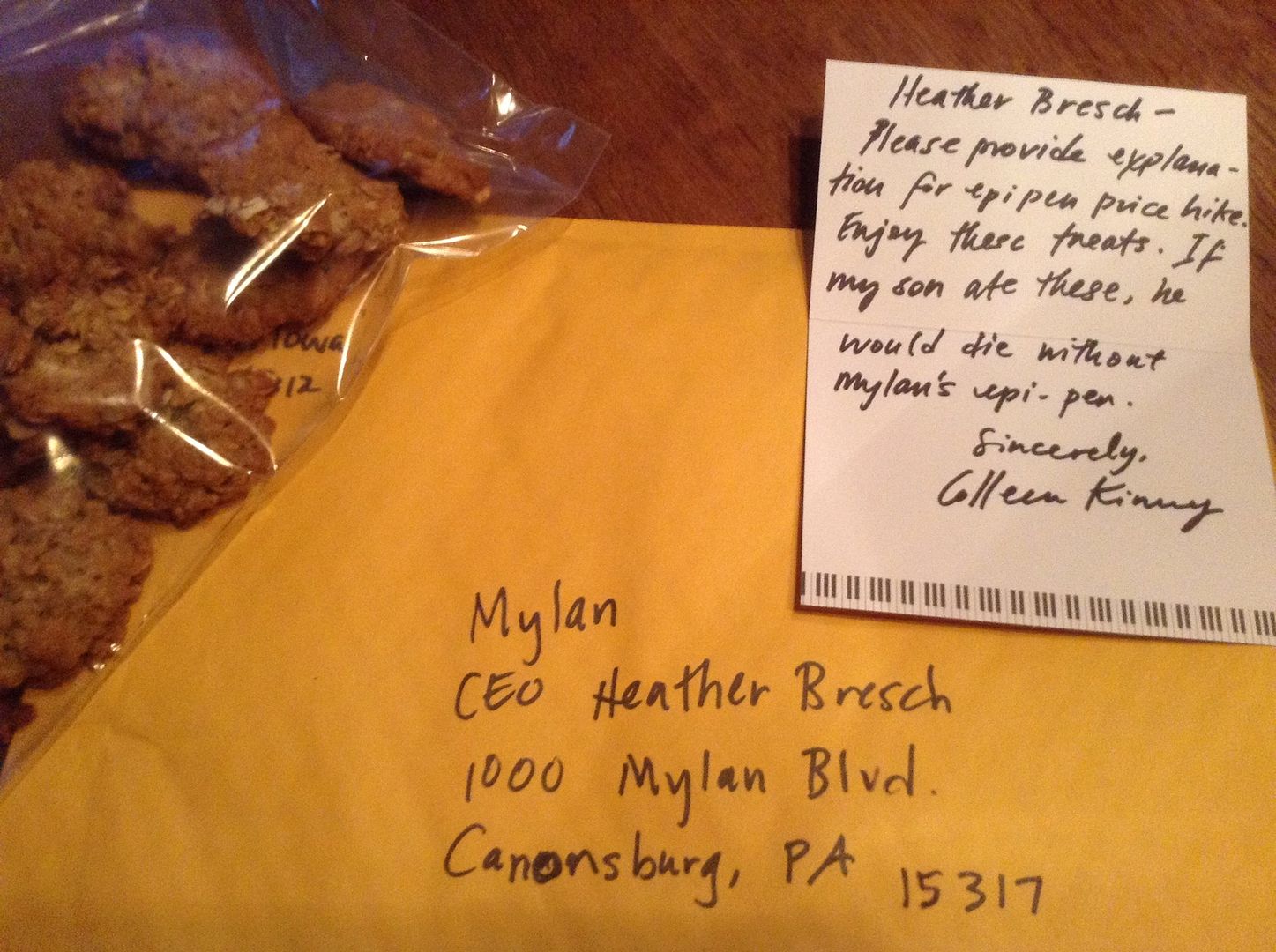Outrage has been building for several days over news that the Mylan corporation jacked up wholesale prices for EpiPens from $56.64 to $317.82 between 2007 and 2015. Mylan is the sole suppler of devices patients can use to inject epinephrine in case of life-threatening allergic reactions. Manufacturing costs for EpiPens have not increased, and the active ingredient is a “generic drug that has been in use for decades.” Adding to the scandal, the annual total compensation for Mylan CEO Heather Bresch has increased from $2,453,456 to $18,931,068 since 2007. The company exploited a loophole called “inversion” two years ago to reduce its tax bill.
Yesterday Democratic presidential nominee Hillary Clinton called on Mylan to reduce the price of EpiPens. Members of Congress including Iowa’s Senator Chuck Grassley have asked the company to explain the pricing changes and asked the Food and Drug Administration “to answer questions about its approval process and other steps for alternatives to the EpiPen.” Michael Hiltzik reported for the Los Angeles Times that another device used to self-inject epinephrine “was taken off the market last year because of manufacturing defects,” and a similar product from a generics company “hasn’t yet won approval from the Food and Drug Administration.” Another generic product is available at a lower cost but works differently, “in ways that can lead to critical errors if users aren’t properly trained,” and it “can’t be substituted when filling a prescription” for an EpiPen.
Mylan promised today to offer more assistance for people who need to buy EpiPens. But as Andrew Pollack reported for the New York Times, the extra discounts are “not lowering the list price of EpiPen, just making it easier for consumers to pay for it. So insurance companies, federal health programs like Medicare and Medicaid and school districts that stock the products could still pay the same price.” Bresch sounded shameless this morning during a CNBC interview, justifying the price increase because of higher marketing and distribution costs and other improvements to the product. “No one is more frustrated than I am,” she claimed.
My friend Colleen Kinney, a Des Moines mother of a child with severe food allergy, is mailing Bresch a care package today. She gave me permission to publish this photo of the cookies she baked and will send along with a note: “Heather Bresch, Please provide explanation for epipen price hike. Enjoy these treats. If my son ate these, he would die without Mylan’s epi-pen.”
I love Kinney’s approach and hope people who depend on EpiPens will bombard the company with their own personal appeals. But even if Mylan eventually lowers the price for EpiPens across the board, stricter regulations on pharmaceutical pricing are also warranted. Mylan’s not the first monopoly supplier to engage in price-gouging on a life-saving product, and it won’t be the last.
Clinton has proposed several policy changes to reduce prescription drug prices, such as allowing re-importation of drugs from Canada, speeding up the process of getting generic versions of drugs on the market, increasing competition for specialty medications, and letting Medicare negotiate with pharmaceutical companies.
Congressional Republicans have blocked those ideas in the past. I’ll know politicians like Grassley are serious about protecting consumers when they go beyond asking questions and issuing press releases to support reforms that could prevent the next EpiPen fiasco.


